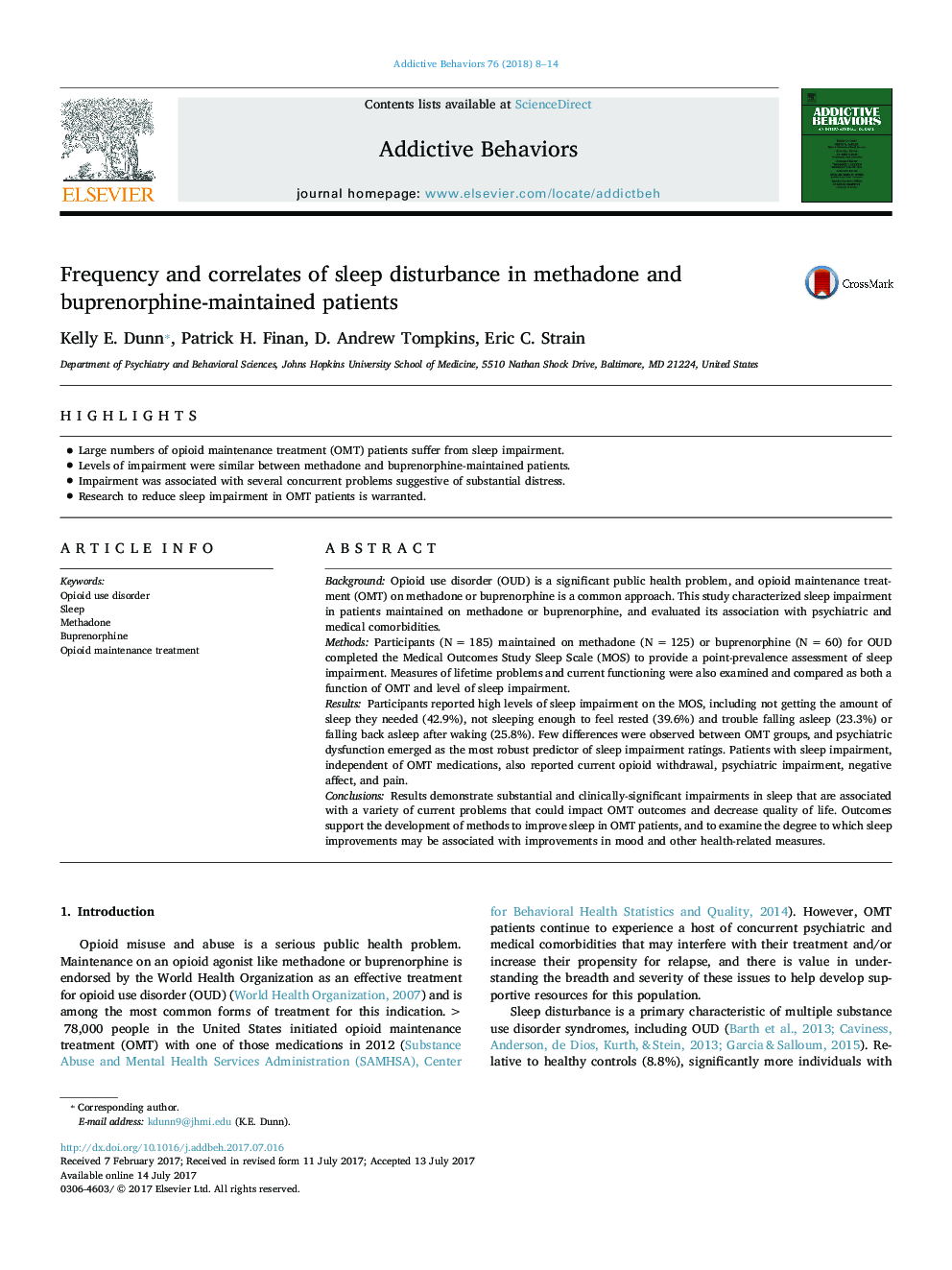| کد مقاله | کد نشریه | سال انتشار | مقاله انگلیسی | نسخه تمام متن |
|---|---|---|---|---|
| 5037603 | 1472495 | 2018 | 7 صفحه PDF | دانلود رایگان |
- Large numbers of opioid maintenance treatment (OMT) patients suffer from sleep impairment.
- Levels of impairment were similar between methadone and buprenorphine-maintained patients.
- Impairment was associated with several concurrent problems suggestive of substantial distress.
- Research to reduce sleep impairment in OMT patients is warranted.
BackgroundOpioid use disorder (OUD) is a significant public health problem, and opioid maintenance treatment (OMT) on methadone or buprenorphine is a common approach. This study characterized sleep impairment in patients maintained on methadone or buprenorphine, and evaluated its association with psychiatric and medical comorbidities.MethodsParticipants (NÂ =Â 185) maintained on methadone (NÂ =Â 125) or buprenorphine (NÂ =Â 60) for OUD completed the Medical Outcomes Study Sleep Scale (MOS) to provide a point-prevalence assessment of sleep impairment. Measures of lifetime problems and current functioning were also examined and compared as both a function of OMT and level of sleep impairment.ResultsParticipants reported high levels of sleep impairment on the MOS, including not getting the amount of sleep they needed (42.9%), not sleeping enough to feel rested (39.6%) and trouble falling asleep (23.3%) or falling back asleep after waking (25.8%). Few differences were observed between OMT groups, and psychiatric dysfunction emerged as the most robust predictor of sleep impairment ratings. Patients with sleep impairment, independent of OMT medications, also reported current opioid withdrawal, psychiatric impairment, negative affect, and pain.ConclusionsResults demonstrate substantial and clinically-significant impairments in sleep that are associated with a variety of current problems that could impact OMT outcomes and decrease quality of life. Outcomes support the development of methods to improve sleep in OMT patients, and to examine the degree to which sleep improvements may be associated with improvements in mood and other health-related measures.
Journal: Addictive Behaviors - Volume 76, January 2018, Pages 8-14
